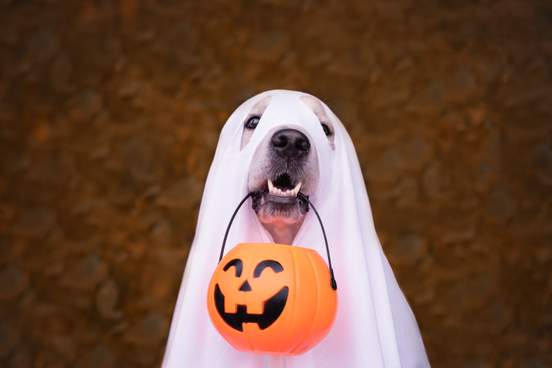
Barghest
: a ghost or goblin believed to portend misfortune and sometimes appearing in the shape of a large dog
Is a barghest’s bark worse than its bite? Listen, we are but humble lexicographers and not particularly keen to find out, so we’ll stick to etymology (but if you want to go toe-to-paw with one, be our barguest: barguest is a spelling variant). Barghest is thought perhaps to have formed as a combination of the English word bar (sometimes spelled bargh), meaning “ridge,” and ghest, an alteration of ghost.
There is a vague legend floating about the parish concerning a man who was killed somewhere near the Rushpit, and whose restless spirit “walks” in Kint’s Lane at midnight. And a barghest has been encountered, it is said, in the Green Way. For the benefit of those whose education in these matters has been neglected, it may be explained that a “barghest” is the spectre of a dog, and its appearance is a fore-runner of disaster. But let no one be alarmed. Ghosts do not hurt people in the twentieth century.
— F. G. Slater, A Cheshire Parish: Being a Short History of Ince, Drawn from the Parish Records and Other Sources (G. R. Griffith Ltd., 1919)
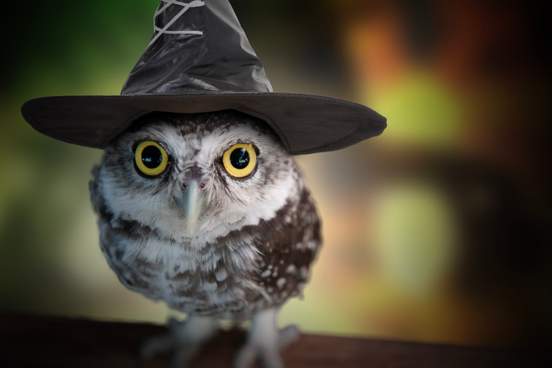
Guytrash
: a specter or ghost especially in the form of an animal
Even if you’ve never heard the word before, we’re sure you’re likely familiar with the concept behind guytrash. No, we don’t mean piles of empty pizza boxes and energy drink bottles (rim shot) but rather a ghostly, supernatural animal. Like the ominous barghest, a guytrash can take the form of a spooky doggo, but it can assume other animal forms as well. The earliest known use of guytrash in print (spelled gytrash) is from 1847, when none other than Charlotte Brontë included it in Jane Eyre.
There is a certain type of phantom that has a definite leaning toward the north of England. It is called a ‘Guytrash’, and takes the form of either a large dog or a riderless horse.
— Peggy Hewitt, These Lonely Mountains: A Biography of the Brontë Moors (Springfield Books, 1985)
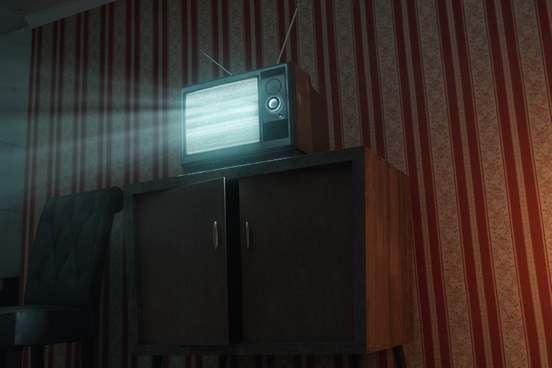
Poltergeist
: a noisy usually mischievous ghost held to be responsible for unexplained noises (such as rappings)
Ghosts throughout the centuries have not only assumed various human and non-human forms, but have had different temperaments, quirks, pet peeves and pet pleasures. Poltergeists, by and large, have gotten a reputation as things that go bump in the night, clattering and clanging and, as our entry suggests, rapping (that is, knocking on something with one’s spectral knuckles, not reciting “Award Tour,” which would be pretty great). So it comes as no surprise that poltergeist translates literally from German as “knocking spirit.” The German verb poltern means "to knock,” and Geist is the German word for “spirit.”
When I get no letter from her I lift an astral letter from the pile and pretend to read it. When I walk alone in the evening she walks beside me, her ectoplasm, her poltergeist walks beside me. I've got to exorcise her somehow.
— Maxwell Anderson, The Eve of St. Mark: A Play in Two Acts (Anderson House, 1942)
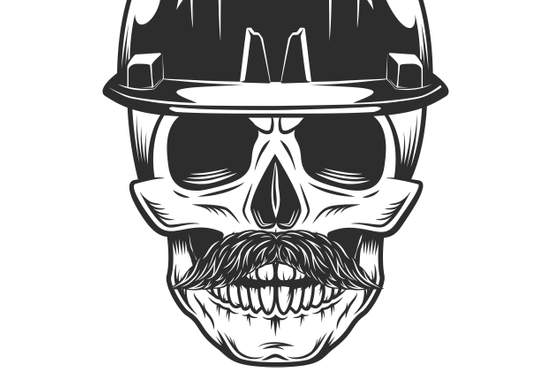
Tommy-knocker
: the ghost of a man killed in a mine
Get a lode of this: like its fellow the poltergeist, the tommy-knocker is a noisy ghost, though one who haunts a very specific locale: mines. The term was first recorded in the late 1800s in the western United States, and is thought to have arisen from the belief that ole Tommy was responsible for the creaking of timbers late at night in the mines.
When I die (said the mining engineer) do not bury me at all;
Cache me on the bottom level, with a pick beside my pall;
Leave a candlestick and matches, then cave the stopes and drifts,
And I’ll be a tommy-knocker for a hundred thousand shifts.
— Samuel B. Ellis, The Canadian Mining Journal, 8 Oct. 1920
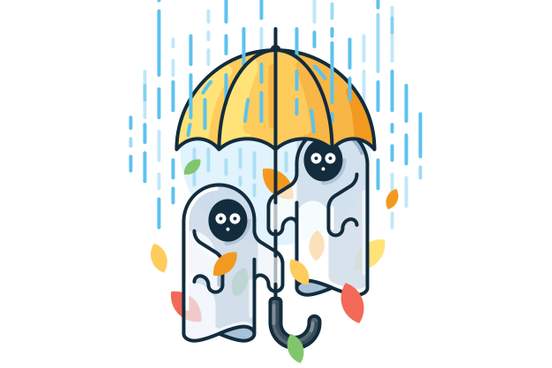
Umbra
: a ghost or phantom
Ghost stories are full of shades and shadows, so why not umbras? After all, the Latin word umbra literally means “shade or shadow,” and has given English a range of words. An umbrella can provide us with shade from the sun. So can an umbrageous tree. (In this case, umbrageous means “affording shade.”) Umbra itself has also been used for centuries, and today refers to dark or shady spots, such as the central dark spot of a sunspot. But umbra’s oldest sense in English is as a synonym of ghost or phantom.
It was in many parts of Greece custom: try to place a coin in the mouth of the corpse, so that the umbra might have the means of paying the ferryman, and thus avoid becoming forever a wanderer in the marshes on the murky shores of the Acheron. After crossing the river, the umbra came to the gates of Persephone’s kingdom, where stood the triple-headed watch-dog Kerberos, who never prevented any one from going in, but never let any one out.
— Daniel Quinn, Harper’s, November 1901

Lubber fiend
: a helpful goblin that does household chores at night
If your house has to be haunted, let it be so by a lubber fiend. It may be worth being creeped out in the middle of the night once in a while to wake up to clean dishes drying on the rack, fresh laundry folded nice and neat. We suppose if you leave a note asking nicely, a lubber fiend might also throw out your guytrash!
Lob Lie-by-the-fire, the Lubber-fiend, as Milton calls him—is a rough kind of Brownie or House Elf, supposed to haunt some north-country homesteads, where he does the work of the farm laborers, for no grander wages than “—to earn his cream-bowl duly set.”— Juliana Horatia Ewing, Stories by Juliana Horatia Ewing (Duffield and Company, 1920)
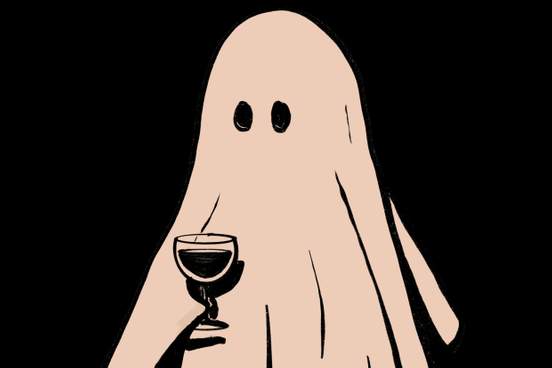
Boggart
: a mischievous or malicious specter, goblin, or ghost
You may familiar with the word boggart from a certain children’s fantasy book (and film) series, referring to ghostly beings that take the form of someone’s deepest fear. Such boggarts are perhaps a subclass of the original boggart, with the word boggart originating in the 1500s to refer to a particularly gloomy sort of ghost. Boggart also appears to be related to the Middle English word for a scarecrow.
For an instant he heard the thread of a laugh, from the thing in the boat that he could not see. A very ancient, mischievous thing, solitary and sly, born of a magic as old as the rocks and the waves. A thing that had lived in Castle Keep for all the centuries of the MacDevon clan, and longer. The Boggart had come shopping too.
— Susan Cooper The Boggart, (Margaret K. McElderry Books, 1993)
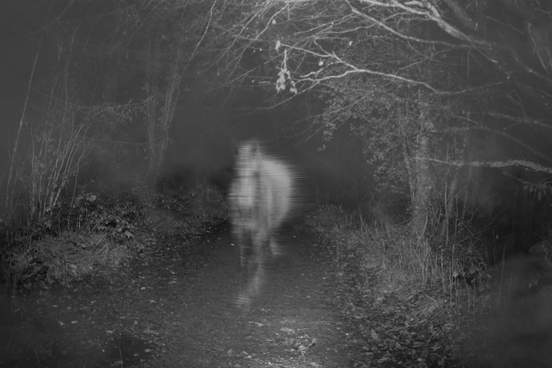
Pooka
: a mischievous or malignant goblin or specter held in Irish folklore to appear in the form of a horse and to haunt bogs and marshes
Pooka comes from the Irish Gaelic word pūca, and may also be related to the English word Puck, also known as Robin Goodfellow, a mischievous sprite of English folklore who influenced the character of Puck in Shakespeare’s A Midsummer Night’s Dream.
It being a November spirit, however, tells in favour of the Pooka, for November-day is sacred to the Pooka. … He has many shapes—is now a horse, now an ass, now a bull, now a goat, now an eagle. Like all spirits, he is only half in the world of form.
— W. B. Yeats, Fairy and Folk Tales of the Irish Peasantry (Walter Scott, 1888)
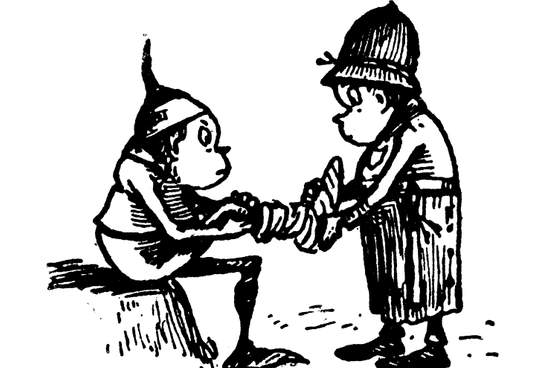
Nisse
: a friendly goblin or brownie of Scandinavian folklore that frequents farm buildings
Like the lubber fiend, the nisse loves tidying up and, according to the respective quotations for both goblins in this article, cream. Unlike the lubber fiend, however, the nisse prefers hanging out in farm buildings. To each their own! The important thing is that the chores are done, so you can put your feet up. Interestingly, nisse is an alteration of Nils, aka Saint Nicholas.
Only the tiny manikin called nisse still makes his home in the barns throughout Norway. He is a harmless creature, dressed in red blouse and pantaloons and wearing a red cap. A mischievous fellow loving horseplay, he upsets the milk pails in the cow barn and causes other troubles on the farm unless he is well fed. Consequently, the farmer must share his Christmas Eve dinner with this manikin, placing cream porridge out in the barn. The next morning the bowl is empty proof of the presence of these manikins unless one should happen to quiz the cat or dog!
— Axel H. Oxholm, National Geographic, April 1939





